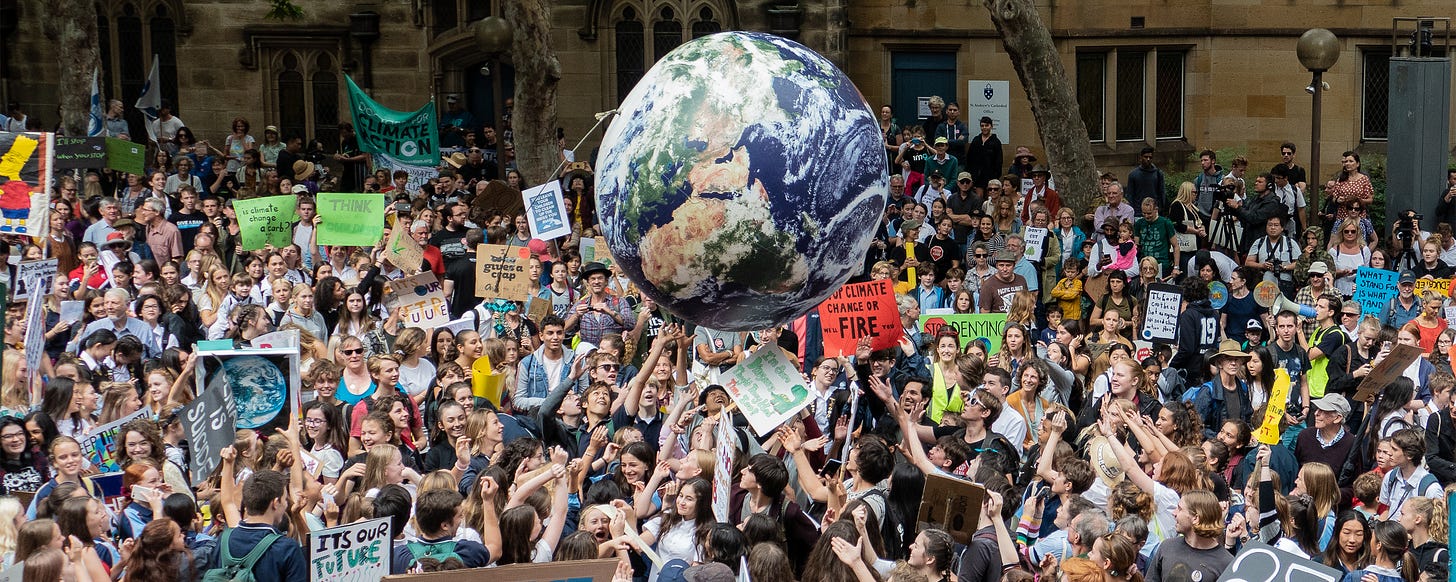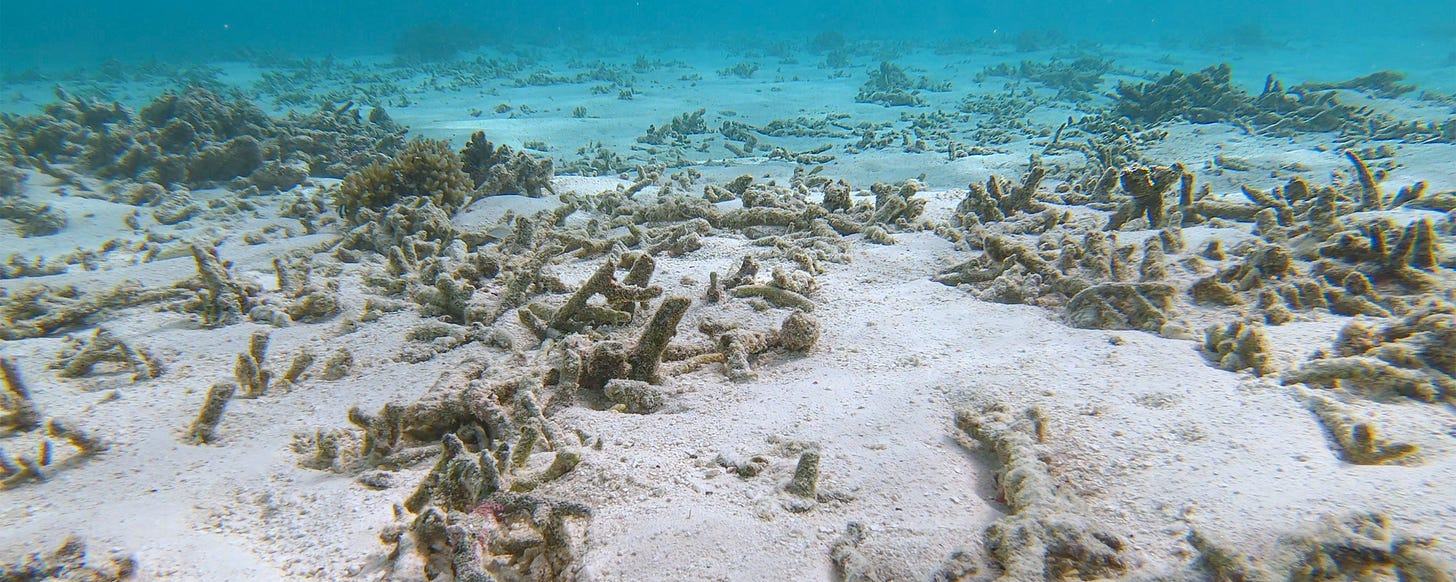Celebrating the Earth
Global climate progress, coral reef bleaching, and the 25,000 conversation challenge
This past Monday was Earth Day, but really – isn’t every day? From the air we breathe and the water we drink to the food we eat and all the materials we use, it all comes from this Earth. The Earth doesn’t need us: we’re the ones who need it. In fact, we can’t survive without it!
That’s why, given our near-total dependence on its resources, I feel every day should be an opportunity to celebrate and be good stewards of our home.
GOOD NEWS
I often hear from people discouraged about the slow pace of climate action. “We’ve tried so hard to tackle climate change and nothing changed,” they say. “Why even bother anymore?”
While it may feel subtle or almost imperceptible at times, a lot has changed over the last decade. Just 10 years ago, 0.7% of cars sold around the world were electric vehicles. Today, 20% are. In 2015, experts were speculating that solar might become cheaper than natural gas. That future is here today: onshore wind and solar are cheaper to build than new fossil fuel plants.
Before the Paris Agreement, the world was forecast to warm by up to 5 degrees C (9F). Now, as this article explains, that number has been dialed back to 2.7 degrees thanks to already enacted government policies around the world.
Of course we need to do more: the science is clear that every tenth of a degree of warming we avoid will prevent a measurable amount of loss and suffering. But a shift is underway, and these wins must also be celebrated. As I told the reporter who wrote the article above, there is a measurable difference between a pre- and post-Paris world and if we don’t talk about what has been accomplished, we are disempowering and discouraging people from taking action.
NOT-SO-GOOD NEWS
The Earth is suffering its fourth global coral bleaching event in three decades, according to the U.S. National Oceanic and Atmospheric Administration’s Coral Reef Watch. Record-high ocean temperatures have caused bleaching events in coral reefs in at least 54 countries in all three ocean basins — the Atlantic, Pacific and Indian, Reuters reported.
Some fear that coral reefs may not survive. “They’re going into a decline that we cannot stop, unless we really stop carbon dioxide emissions,” says my colleague David Obura, an ecologist and director of a nonprofit that supports coral reef sustainability in East Africa.
Luiz Rocha, curator of fishes at the California Academy of Sciences, just returned from a deep dive in Australia’s Coral Sea where he saw corals bleaching all the way down to 60 meters (200 feet). “The saddest part of my job is seeing the ecosystem I love and live to protect dying in front of my eyes,” he posted on social media.
Coral reefs support a quarter of the ocean’s biodiversity, as I explain here. And while innovative science can help identify and preserve "super reefs" that are resistant to normal heat waves, the hotter the ocean gets, the less effective these measures will be. As Luiz says, the solution is clear: swift action must occur at all levels to reduce fossil fuel use.
WHAT YOU CAN DO
Citizen’s Climate Lobby – one of the organizations I serve as science advisor to – is encouraging you to have open and honest conversations about climate change with your friends, family, and communities.
This Earth Month, they have a goal of 25,000 climate conversations to break the silence about climate change and pave the way for action. As they say here, “For such a big problem, we don’t talk much about climate change. All that silence makes climate change seem less urgent than it actually is, which in turn keeps us from adopting solutions at the pace that is needed. After all, if nobody is talking about it, how important can it be?”
To inspire these conversations, they’re using my head-heart-hands template: help people connect what they know to why they care and what they can do about it. And they’re tracking them! As of today, volunteers have racked up at least 17,760 conversations.
Click here to log your own conversations and help them get to 25,000 by the end of the month. If you’re looking for more topics to get you started, browse through the newsletter archives and give my TED talk a watch. Once you get the hang of it, you’ll see it’s not nearly as hard as you thought!
Fri., May 3rd at 6pm and 7:30pm CT - Science by the Glass with the TTU Climate Center - in person at Nashwell Café in Lubbock, TX






Yes, I agree! Every day is an opportunity to save our planet https://open.substack.com/pub/lifeisajourney/p/celebrating-earth-day-and-national?r=19b1p&utm_medium=ios
I am interested in training adults to do Climate Conversations but they require one to know enough about the multiple issues involved in the Climate Crisis. Is there some resource I can consider referring them to that will given them enough background to connect personal stories to some part of the climate crisis - as it has so many issues that might come up in a conversation?